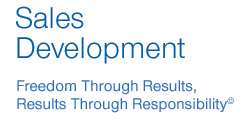Happy Ears
March 3rd, 2016
Most Successful Entrepreneurs and Sales Executives tend to be optimists.
While optimism can certainly be a beneficial trait, most optimists have a communication dysfunction known as Happy Ears Syndrome™. Quite simply, an individual listening with Happy Ears will hear what they want to hear instead of learning the truth. And the consequences can be severe, potentially costing thousands of dollars and wasting tons of time and energy.
Review the following scenario:
(italics indicate just some of the vital information filtered by Happy Ears)
Manager (or Owner): How did your sales appointment with John at XYZ Company go?
Sales Rep: It went great!
(what the heck does that mean?)
Manager: Really, what did you learn?
Sales Rep: John said he really needed a product like ours and that money was no object.
(Just because John says he needs a product like ours, doesn’t mean he would BUY from us. Do we even know if he has the power, resources, and commitment to buy from us if he did? Do we know if he’s trying to wrangle a bid from us so he can shop around?)
Manager: When will he be buying?
Sales Rep: Soon, I think. I’m going to forecast the sale. I expect it to happen this quarter.
(If John did have the decision power, does he have a compelling reason and commitment to act? What if he doesn’t act this quarter? It seems like there are at least 50 more things we should learn BEFORE this sale should ever show up on a forecast)
Manager: Should we get the engineering & design team to start putting together an estimate so we can create a proposal?
Sales Rep: Sounds good!!!
(If the Manager permits a proposal to be created at this point, he/she is also listening with Happy Ears. Co-dependent dysfunction. Why in the world would any company invest precious engineering, design, estimating, inventory, or any other resources to create a proposal in the absence of so much critical information?
Has this scenario ever played out in your business?
Two-thirds of all forecasted sales are lost to Status Quo. In other words, the vast majority of proposals resulting from Happy Ears go into the circular file.
Although Happy Ears are pervasive among optimists, this costly condition also exists among others, like individuals that fear rejection and those who lack assertiveness or possess a need for approval.
The formula for effective, profitable sales conversations is not complex. It consists of executing a simple, effective sales process in order to continually facilitate discovery, gain clarity, and learn the truth. Salespeople that use this simple process will outperform those with Happy Ears by orders of magnitude and bring huge rewards to your top and bottom line.
Stay optimistic, but take a hard look at the quality of both external and internal communication. Eliminate Happy Ears Syndrome™ from your Sales Team and watch your profits soar.
If you believe the Syndrome may exist in your organization and would like to learn for sure or take specific steps to eliminate it, I’d love to hear from you. Reach out to me - joe@zthree.com
Copyright © Joe Zente 2016. All Rights Reserved.









